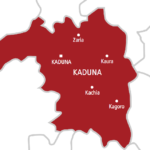The Executive Secretary, National Board for Technical Education (NBTE), Professor Idris Muhammad Bugaje, in this interview with Daily Trust Saturday, speaks about the recent recognition of Panteka market as a training centre by the board. He explained that it is the duty of the board to promote the Panteka brand because over the last three decades, Panteka has trained about 600,000 youths in different skills.
There was an MOU during your tenure as Kaduna Polytechnic Rector with leaders of Panteka Market in the year 2021. Tell us more about that.
Well, it was even before 2021. I took over as Rector of Kadpoly in September 2017, and in November of the same year, my first meeting with the council was to set up a centre for technology development to engage Panteka market because I have known Panteka market for more than three decades.
There have been a lot of inventions and innovations taking place in Panteka but in an informal way. So, Kadpoly, being neighbours with Panteka, felt there was a need for us to engage them and see what value we could add as an academic institution. We started the discussions, and we trained them as Quality Assurance Assessors, and some of them were even trained as Quality Managers.
- Tinubu vows to make Nigeria Africa’s hub in electric vehicle revolution
- Drug war: NDLEA officer wins global enforcement academy award, gets special promotion
We tried to formalize the training, and in 2021, we signed the MOU to facilitate the training. We asked the National Board for Technical Education (NBTE) at that time to suggest an awarding body. So, they suggested the Nigerian Institute of Builders because about 10 or 12 skills sets could be certified by the Nigerian Institute of Builders, and that’s how the programme started.
The first programme was to rollout recordation of prior learning because Panteka already had the skills, so you don’t need to put them through the full curriculum of training. Thus, we gave them RPL, and many of them were certified, and even now, further RPL is ongoing.
That was the background. I discovered Panteka during my masters in 1984 or 1985, and I said anytime we get the chance, we are going to promote this brand, and it is now a brand. Many youths around the environment who would have become security risks are given skills and capacity to stand on their own.
Over the last three to four decades, Panteka has trained about 600,000 youths. Panteka started from the day Kaduna was built, the name comes from “pan” and “taker,” those who take pans for construction. That is how the word was adopted in Hausa to become Panteka.
It’s a very old institution; it’s a heritage site, and we think the government needs to invest. Kaduna State governor has invested in Panteka, we want the federal government to also invest so that it can be a hub for training young people and empowering them so that we can reduce the rate of unemployment across the country.
Most of these youths trained as Quality Assurance and Quality Managers. What are their employability chances?
Well, the employability is what we are now addressing. You know, as NBTE, we have intervened. We have talked to the Head of Service, we presented papers at the National Establishment Council, and the Head of Service has finally agreed to include the Nigerian Skills Qualification Framework (NSQF). It is now part of the national scheme of service, and the certificate issued in Panteka to the trainees or their products can be used to get employed in any government agency.
They can even get employed overseas because NSQF is now the recognized skills qualification for Nigeria. And when you come to do the NSQF, they will not ask you for five credits like they do in universities and polytechnics. They will ask, “What can you do with your hands?” That is basically the requirement. Once they have the skills and perform well on those skills, it should be able to get your certificate levels 1-6, and with that, they can be engaged in government or private companies as well as offered jobs in offices.
How many of these youths have been trained since the programme started?
Well, the RPL in Panteka was the first RPL in the whole of Nigeria. Those who were conducting the RPL didn’t understand the mechanisms of the RPL. It took very long to graduate them in November last year. But we told them to go to environments like Kenya and see how the RPL is being rolled out. In Kenya, within two to three weeks, they certified about 900 informal apprentices. Their own Panteka is called Juakally; this is a Swahili word for those who work under the sun, and that is what Panteka is all about.
They rolled out 900 when they did the ceremony last month, so we told the Nigerian trainees that we need to understand it very well. We are even inviting the TETFUND to support the polytechnic to send some of their graduates to Kenya to understand how RPL is administered.
RPL shouldn’t take more than two or three weeks. In an assessment process, some 45 youths were graduated in November last year, and there’s another 30 or 40 undergoing test now. So, we have issued approval for Panteka to be a training centre. With this approval, Panteka doesn’t even need to go to the polytechnic; they can carry out the training because they have about close to 20 assessors and they have 2 IQMs.
This is one of the highest across the country in one unit. So, with that, we have given them the approval, and they will soon start doing their RPL. We are taking a few of them to Kenya to see how it’s being done so we can also roll it out in massive numbers.
I would like to see RPLs in thousands every year in this country, not just in few tens or hundreds because that is the way to go. Seventy five percent of the Nigerian economy is informal, and by the time we roll out RPL, I think we are going to certify most of them, and our hope is in the future. Before you repair anybody’s car, you have to show your license. Before you do any plumbing in any house, you have to show your license.
How do we give those licenses? We have to give the NSQF certificate through RPL, and then those regulatory bodies, CARBON, COREN, etc., will issue you with a license. This is what is happening in Europe, America, and Asia, so Africa shouldn’t be left behind.
How can we improve their productivity?
A lot of ingenuity that you cannot even think about can be created in Panteka. My former chairman, Alhaji Yusuf Hassan, once told me about a manager in a Coca-Cola company in Kano. Their machine broke down about 30 years ago, and he was told that they needed to go to Germany to get a replacement because the machines were produced in Germany.
But somebody advised them to go to Panteka, and when he came to Panteka and spent two days in Kaduna, he got his parts reinvented – the same capacity, the same dimensions. He went back to Kano, fixed it, and it worked. He was the one pushing for us when he was chairman of Kaduna Polytechnic to drive the Panteka agenda forward.
Our intention is to improve the productivity of Panteka; we need to help them with modern tools, which are currently missing in Panteka. The market is doing a lot of recycling of metal -aluminium, among others – that we throw away, and they melt it to create new products. They need to have a laboratory for testing all these materials so that they can determine the hardness, elemental composition, etc.
When they are producing the part for a particular function, they need to know the correct mix of those scrap materials to add. They also need equipment for welding. Welder laser is now being used in welding, and it gives a very neat result. They need to train their students with modern tools.
They need to give them some ICT training too so that they can produce world standard products and compare their designs across the world. But we are asking the federal government to intervene so that they can get new equipment, new tools to enhance their productivity. If we do that, Panteka will be able to train more young people.
The trainees in Panteka are more than the trainees in Kadpoly because there are over 38,000 trainees in Panteka. Across the whole of Africa, Panteka is the largest. Those in Ghana, Kenya, Tanzania, etc., we counted them in single digits of thousands, but Panteka is in double digits of thousands, and if you can empower them, Panteka can even take a hundred thousand trainees if properly empowered and well-equipped.
You have become a household name in the Panteka market, and many are wondering why you have this passion for Panteka?
Well, I don’t know, but I see a lot of potentials in Panteka, and I believe if formally tapped, Panteka will be our new China because a lot of equipment we are buying in China can be produced in Panteka. We have people who may not even know the ABCD alphabet, but they have the capacity to create innovations. This is what the government should be encouraging, and I am very passionate about it. If I were a money bag, I would put all my money in Panteka, but unfortunately, I am an academician.

 Join Daily Trust WhatsApp Community For Quick Access To News and Happenings Around You.
Join Daily Trust WhatsApp Community For Quick Access To News and Happenings Around You.

